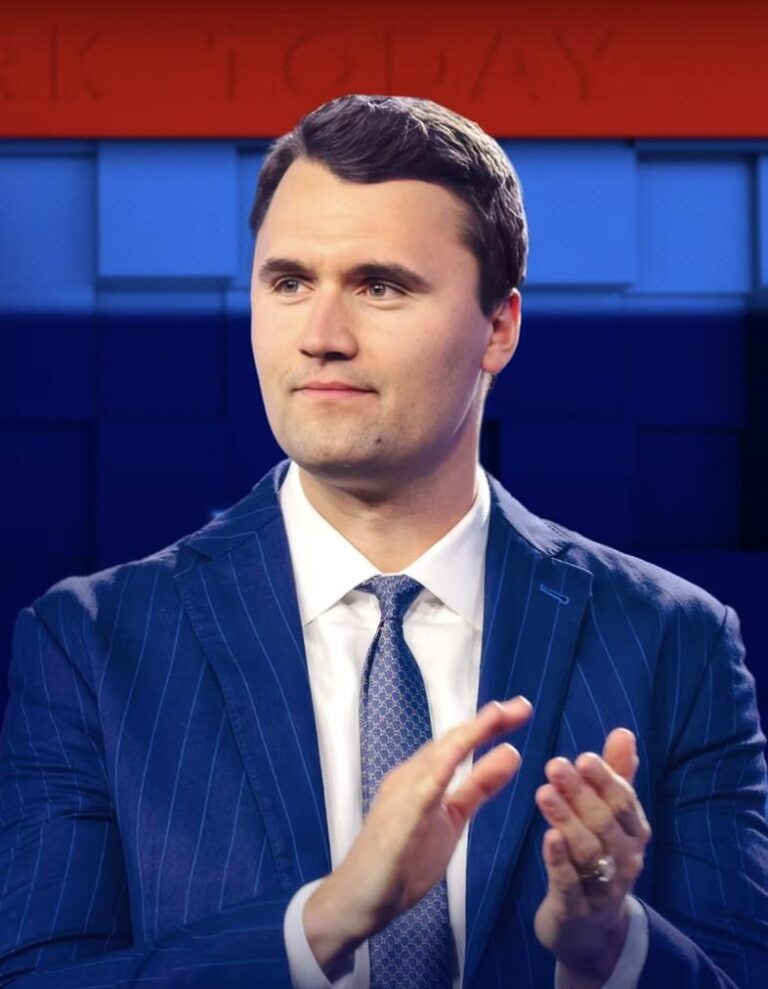Charlie Kirk: Transforming Youth Engagement in American Conservatism
Emergence of a Young Conservative Leader
Charlie Kirk has become a central figure in mobilizing young conservatives across the United States. As the founder of Turning Point USA, a nonprofit dedicated to promoting conservative values among youth, Kirk has significantly influenced the political involvement of millennials and Generation Z. His efforts have helped shift the traditionally diverse political preferences of younger voters, increasing their alignment with the Republican Party.
How Charlie Kirk Captured the Attention of Young Americans
Kirk’s rise within the conservative movement is marked by his innovative use of digital media and grassroots organizing. By harnessing platforms such as Twitter, Instagram, and YouTube, he has created a direct line of communication with millions of young people. Turning Point USA’s rapid expansion, with chapters on numerous college campuses, has fostered a new generation of conservative activists who advocate for free-market economics, limited government intervention, and traditional social values. This approach has contributed to a notable increase in youth voter turnout and GOP support, challenging the assumption that younger demographics predominantly favor liberal ideologies.
- Consistent Digital Engagement: Utilizing social media to maintain a strong presence and influence.
- Campus Networks: Building student-led groups nationwide to promote conservative principles.
- Media Collaborations: Partnering with conservative outlets to broaden message reach.
- Issue-Centric Messaging: Focusing on topics like economic opportunity, free speech, and patriotism that resonate with young voters.
Innovative Tactics Driving GOP Youth Support
Kirk’s strategy combines modern communication tools with traditional activism to engage young conservatives effectively. Platforms like TikTok and Instagram allow him to present political ideas in relatable, informal formats that appeal to younger audiences. By integrating viral content and meme culture, Kirk transforms complex political issues into accessible and shareable narratives, fostering greater interest and participation.
Key components of his approach include:
- Campus Mobilization: Funding and organizing programs that empower students to lead conservative initiatives.
- Policy Alignment: Connecting young supporters with GOP priorities such as tax reform and school choice to motivate voter turnout.
- Live Engagements: Conducting rallies, debates, and speaking tours to energize grassroots activism through personal interaction.
| Strategy | Effect | Audience |
|---|---|---|
| Social Media Virality | Boosts awareness and engagement | Teens and young adults |
| Campus Activism | Fosters long-term loyalty | College students |
| Policy Education | Encourages informed voting decisions | Young voters |
Influence on Republican Party Dynamics and Policy Priorities
Through Turning Point USA, Kirk has significantly altered how the Republican Party engages with younger voters. His activism has not only increased youth participation in GOP events but also pushed the party to reconsider its messaging and policy focus to better align with millennial and Gen Z concerns. This shift has led to a broader inclusion of cultural and economic issues relevant to younger generations, such as digital free speech and educational reform.
Notable changes within the GOP influenced by Kirk’s efforts include:
- Refined Messaging: Tailoring communication to youth-friendly platforms and topics.
- Candidate Development: Encouraging younger, ideologically aligned candidates to run for office.
- Expanded Policy Focus: Incorporating issues like school choice, fiscal responsibility, and digital rights.
| Aspect | Before Kirk | After Kirk |
|---|---|---|
| Youth Engagement | Minimal involvement, low turnout | Marked increase in participation and activism |
| Policy Agenda | Focused on traditional conservative issues | Broadened to include cultural and digital freedoms |
| Party Branding | Conventional and less appealing to youth | Dynamic outreach targeting younger demographics |
Effective Approaches to Engaging Young Voters Today
In the current political climate, connecting with young voters requires authenticity and a focus on issues that genuinely matter to them. Campaigns must prioritize transparency and foster grassroots involvement, as younger generations value sincere engagement over scripted messaging. Utilizing interactive platforms such as live Q&A sessions, social media dialogues, and community forums can transform political outreach into a two-way conversation.
Addressing the intersection of social concerns and economic realities is essential. Young voters are increasingly concerned with climate change, student loan debt, and social justice, while also showing interest in entrepreneurship and technological innovation. Successful engagement strategies include:
- Targeted Social Media Initiatives: Collaborating with relatable influencers and leveraging trending content formats.
- Storytelling Rooted in Policy: Demonstrating how legislation impacts everyday life.
- Inclusive Events and Voter Drives: Ensuring cultural diversity and accessibility in outreach efforts.
| Engagement Method | Primary Benefit | Example |
|---|---|---|
| Interactive Polls | Provides immediate audience feedback | Instagram polls on key policy issues |
| Short-Form Video Content | Builds emotional resonance | Peer-created TikTok videos sharing personal stories |
| Peer-Led Workshops | Enhances community trust and participation | University voter registration and education events |
Looking Ahead: The Continuing Role of Charlie Kirk in Youth Politics
As Charlie Kirk maintains his influence over conservative youth activism, his role highlights the shifting strategies within the Republican Party to engage younger voters. Whether regarded as a divisive figure or a transformative leader, Kirk’s impact on amplifying conservative perspectives among America’s youth remains a critical element in the evolving political dialogue. Observers will continue to watch how his initiatives shape the GOP’s future direction and youth involvement in politics.







